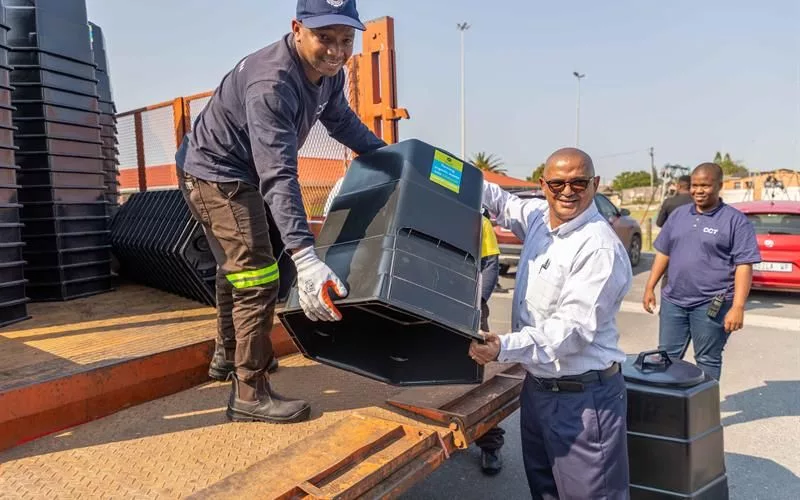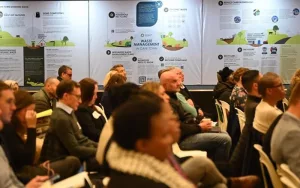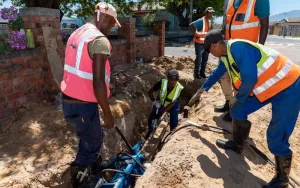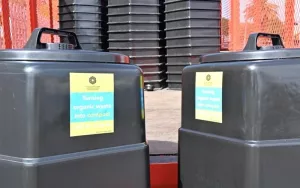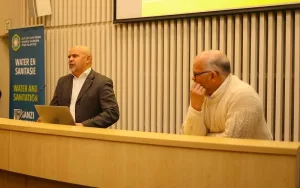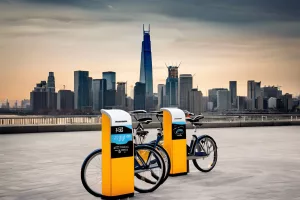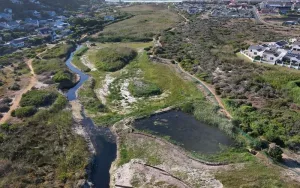Cape Town is leading a green revolution by giving compost bins to households with gardens, turning food scraps and yard waste into rich soil. This simple act helps reduce harmful gases from landfills and makes gardens healthier, while bringing neighbors together in lively community events. People from all walks of life join in, sharing tips and stories, as the city grows greener and more connected. Though the program currently reaches only some areas, it sparks hope and creativity for a cleaner, brighter future. Each compost bin becomes a small hero in Cape Town’s big story of renewal and care for the earth.
Cape Town has launched an exciting new waste strategy to make the city cleaner and greener. It improves trash collection with smarter routes and better trucks, while teaching people how to recycle and compost to cut down landfill waste. The plan respects every neighborhood’s unique needs and invites everyone residents, businesses, and leaders to work together. By using new technology and community spirit, Cape Town is building a fresh, healthy future for all.
In July 2024, the city kicked off a big project to replace old water and sewer pipes, investing over R323 million to keep services running smoothly as more people move in. So far, they’ve swapped out 18,446 meters of water pipes and 41,030 meters of sewer pipes, bringing fresh life to neighborhoods like Hout Bay and Kommetjie. This effort not only fights leaks and overflows but also encourages residents to help protect water resources. As workers dig and install new pipes, they’re quietly building a better, more reliable future for everyone in the city, blending the old with the new.
In Greenways and Edgemead, residents are getting free compost bins to turn kitchen and garden scraps into rich soil. This simple act helps reduce waste, cut harmful gases, and grow healthier gardens without chemicals. Neighbors gather to collect bins, share tips, and learn how easy and rewarding composting can be. The program is more than just waste management it’s a small but powerful way for the community to care for their environment and build a greener future together.
Trees are powerful heroes in South Africa’s cities, cleaning the air, cooling hot streets, and making neighborhoods greener and healthier. Women leaders shine brightly, guiding communities toward smarter, kinder ways to grow cities that care for people and nature alike. With bold plans to plant millions of trees by 2025, South Africans are coming together to heal the land, fight climate change, and build a future full of hope. Each tree planted is a promise of life, strength, and a cleaner, cooler tomorrow for all.
Wastewater package plants are small, smart facilities that help cities manage dirty water in a cleaner way. They are easy to install and can be placed where big treatment plants can’t go, making them super useful for crowded urban areas. Recently, a workshop brought together many people to learn how to set up and run these plants, highlighting their importance for public health and the environment. By using these innovative systems, cities can boost their economies while making sure they take care of our precious water resources.
Cape Town’s Urban Mobility Initiative is a proposal to improve nonmotorized transport in certain areas of the city by creating safer and more accessible spaces for pedestrians and cyclists. The initiative is participatory, with the city encouraging residents to provide feedback and suggestions. The proposal represents the city’s commitment to improving road safety and creating more ecologically sustainable and habitable urban landscapes. It is an opportunity for residents to shape their city spaces and contribute to a more inclusive and sustainable future.
The Lower Silvermine Wetland dredging project was a crucial initiative to preserve the ecosystem’s balance, reduce flood hazards, and create a safe breeding environment for threatened species. The project eliminated silt, invasive plants, and reeds overpowering the natural landscape while promoting the growth of native plant species. The LSW serves as a model for other city waterways, providing spaces for leisure activities while ensuring a safe habitat for various wildlife and enhancing overall environmental, physical, and mental health.

